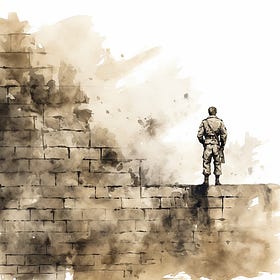When a store undergoes renovation, we often see this sign hanging on a board outside. And we naturally accept it. But when we ourselves strive to make radical changes within ourselves or in our lives, why don’t we give ourselves the time and space?
No one is surprised that the interior of a store is closed off from curious onlookers during renovations, and the owner doesn’t stand outside discussing the planned modifications with passersby. It’s their store; they do with it as they please. If it turns out great, it’s their success, and if they mess it up, they can try again.
Lifestyle changes, self-discovery work, and any kind of transformation have multiple stages. These stages have been categorized in various ways by many over the years.
Phases of the transformation process can be divided into several phases
First, there’s the initial phase where enthusiasm prevails. During this phase, individuals set their goals, allocate ample time for achieving them, and celebrate even the smallest accomplishments.
Then comes the second phase, which is often the toughest and longest part of the journey. It’s a period when we navigate through a dense fog of demotivation, experience pains, and wrestle with impatience. In this phase, the risk of reverting back to old habits is highest. The intended goal may become obscured by the fog, and the increasingly challenging terrain demands greater energy and inner strength. Life might appear to be nothing but a struggle. These difficulties can seriously test even the most determined individuals. Therefore, it’s essential that, as we grapple with ourselves, our environment doesn’t exacerbate our challenges.
The third phase of transformation is when we begin to see tangible results, and our enthusiasm gradually returns. We start to react differently in complex situations. We become calmer when we used to be disturbed or angry, remain neutral when we used to be triggered, or assertively defend our boundaries. This phase may also involve conflicts with our environment, as our changed behavior disrupts established expectations, requiring those around us to get to know us anew. Also the new routines start to feel familiar and easier to implement.
The fourth phase is characterized by a calming of the storm of change. The upheaval subsides, and we gain clarity about who we have become. We also identify those who have accepted our transformed selves. This phase evokes a mix of pride in our achievements and the pain of lost relationships.
The fifth phase is when we comfortably inhabit our new identity. We have successfully changed, take pride in our transformation, have processed the loss of relationships, and experience greater happiness and well-being.
Keep in mind that transforming ourselves is a lengthy, exhausting, and intricate journey, so be sure to allow yourself the necessary time and space to navigate it!
Imagine if the store owner were to allow passersby or even friends into the demolished shop — people who don’t share his vision of the finished store — he would quickly lose enthusiasm. The uncertain faces and the feigned enthusiasm hidden behind false compliments can be particularly hurtful to someone who’s putting in great effort.
Even though these reactions might be understandable, as for external observers, the interior of the store is still just a pile of dust and scattered pieces of flooring. That’s why it’s better to post a sign on the door that says “Closed for Renovation.” And when the store is ready, they open their doors, revealing the complete magnificence to the visitors.
When we change our lifestyle or engage in self-discovery work, it should be just as natural for us to withdraw during the transformation process. We don’t need to quit our jobs or abandon our families and friends, but it’s worthwhile to talk about these matters sparingly and only with those whose support we are completely confident in.
There’s no need to make our own journey more difficult. Change is risky and often frightening for everyone. Those around us, even unconsciously, may try to hold us back because they fear losing us. It’s good to communicate to them that our withdrawal is temporary, that we need a little time and space for ourselves. Valuable relationships and friendships (as discussed in article “Old Friendship — Is it Worth Its Weight in Gold or Is It Just Heavy as Lead?”) will withstand this period. Relationships built solely on meeting the expectations of others will likely fade away, but let’s be honest, they weren’t much loss anyway!
– Eszter
Related Articles
Emotions, the Language of Our Soul — Anger
Border Defense — Do Our Psychic Bastions Even Exist?
Home | Notes | Articles | Eszter’s Magic | Literary Bonbons | Short Stories and Guides | Beyond the Book | EWE Issues | Archive | About







